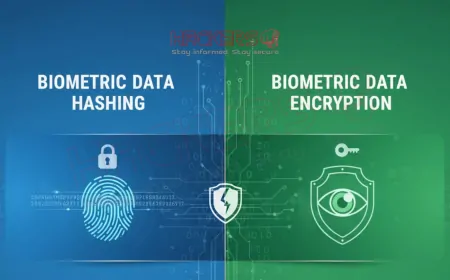How Affiliation with SPPU (Savitribai Phule Pune University) Shapes Cybersecurity Education in Pune
Think about a world where your personal data is under constant threat from invisible attackers. In today's digital age, cyber security has become the shield that protects us all. Pune, a city known for its educational excellence, is at the forefront of training the next generation of defenders through programs affiliated with Savitribai Phule Pune University (SPPU). This affiliation plays a key role in standardizing and elevating the quality of cyber security education. It ensures that students in various colleges receive a consistent, up-to-date curriculum that meets industry needs. In this blog, we'll explore how SPPU's guidelines influence teaching methods, course content, and student outcomes in Pune's colleges. If you're a beginner wondering about this field, or a student choosing a program, you'll find clear insights here. We'll break down complex ideas, like how a university's rules can make learning more practical and relevant. Let's see how this partnership is building a safer digital future, one classroom at a time.

Table of Contents
- Overview of Savitribai Phule Pune University
- Benefits of SPPU Affiliation for Colleges
- How SPPU Shapes the Cyber Security Curriculum
- Key Cyber Security Programs in Affiliated Colleges
- Emphasis on Practical Training and Skills
- Impact on Faculty and Teaching Quality
- Student Experiences and Opportunities
- Career Outcomes for Graduates
- Comparison Table of Affiliated Programs
- Challenges and Future Directions
- Conclusion
- Frequently Asked Questions
Overview of Savitribai Phule Pune University
Savitribai Phule Pune University, often called SPPU, is one of India's leading universities. Founded in 1949, it serves as a hub for higher education in western Maharashtra. With over 600 affiliated colleges, SPPU oversees a wide range of programs, including those in science, technology, and emerging fields like cyber security. The university's mission is to provide quality education that meets global standards while addressing local needs. In Pune, known as an IT and education center, SPPU's influence is strong. It sets the rules for curriculum, exams, and quality checks in affiliated colleges.
Affiliation means colleges follow SPPU's guidelines, which helps maintain consistency. For cyber security, this is crucial because the field changes quickly with new threats like viruses or hacking attempts. SPPU updates its syllabi to include the latest topics, ensuring students learn relevant skills. The university also promotes research and industry ties, which benefit affiliated institutions. Beginners might wonder what cyber security is: it's the practice of protecting computers, networks, and data from harm. SPPU's programs teach this from basics to advanced levels.
SPPU has adopted the National Education Policy 2020, or NEP 2020, which emphasizes flexible learning and skills over rote memorization. This policy shapes how courses are designed, with credits for theory, practicals, and even extracurriculars. In cyber security, it means students get hands-on experience alongside classroom lessons. The university's accreditation from bodies like UGC adds credibility, making degrees from affiliated colleges valuable. Overall, SPPU acts as a guiding force, helping Pune's colleges produce skilled professionals ready for the digital world.
Benefits of SPPU Affiliation for Colleges
Affiliation with SPPU brings several advantages to colleges in Pune. First, it provides a recognized framework for programs. Degrees from affiliated colleges carry the university's name, which employers trust. This recognition helps attract students and faculty. Colleges gain access to SPPU's resources, like libraries, research centers, and expert guidance. This support is vital for updating facilities and training teachers.
Another benefit is standardized quality. SPPU sets benchmarks for curriculum and assessments, ensuring all affiliated colleges meet certain standards. For cyber security education, this means consistent coverage of essential topics across institutions. Colleges can focus on teaching while SPPU handles broader aspects like syllabus revisions. Affiliation also allows for autonomy in some areas, but with university oversight to maintain quality.
Financial and administrative perks exist too. Affiliated colleges can apply for grants through SPPU and participate in university events. This fosters collaboration among institutions in Pune. For students, it means transferable credits if they switch colleges. In terms of education quality, affiliation encourages regular audits and improvements. SPPU's online systems for affiliation and approvals streamline processes, making it easier for colleges to introduce new courses like cyber security. This setup helps Pune remain a top spot for tech education, benefiting the local economy.
How SPPU Shapes the Cyber Security Curriculum
SPPU plays a central role in designing the curriculum for cyber security programs. It provides detailed syllabi that affiliated colleges must follow. For example, the B.Sc. in Cyber Security is structured over three years, with an option for a fourth year under NEP 2020. The program uses a credit system, where each course has points based on hours of study. This allows flexibility, letting students choose electives.
The curriculum starts with basics in the first year. Semester one covers Linux administration, C programming, and information technology. These build foundational skills. Linux, for instance, is an operating system used in many secure setups. Practicals are key, with labs for each subject to apply concepts. In semester two, topics shift to cyber security fundamentals, computer networks, and Python programming. Python is a language often used for automating security tasks.
Later years dive deeper. Second year includes ethical hacking, which is testing systems for weaknesses with permission, and cloud security. Third year focuses on digital forensics, investigating cyber crimes, and advanced topics like blockchain, a secure way to store data. SPPU ensures the syllabus aligns with industry needs, incorporating tools like firewalls, which block unauthorized access. This structure shapes education by balancing theory and practice, preparing beginners for real jobs.
SPPU's influence extends to evaluation. Courses have continuous assessments and end exams, promoting steady learning. The multidisciplinary approach includes subjects like environmental studies, broadening students' views. By updating syllabi regularly, SPPU keeps education current with threats like ransomware. This standardization across colleges ensures quality, though institutions can add local flavors through projects.
Key Cyber Security Programs in Affiliated Colleges
Several Pune colleges offer cyber security degrees under SPPU affiliation. Indira College of Commerce and Science provides B.Sc. in Cyber Security, focusing on threats and career opportunities. The program emphasizes innovative skills for the evolving field.
ASM CSIT offers a full-time B.Sc. in Cyber Security, affiliated with SPPU. It teaches in-demand skills for software and security careers. Suryadatta International Institute of Cyber Security (SIICS) has B.Sc. in Cyber and Digital Science, preparing students for forensics and security roles.
Pratibha College of Commerce and Computer Studies also offers related programs. These colleges follow SPPU's syllabus, ensuring uniformity. For instance, all include practicals in ethical hacking and malware analysis, which is studying harmful software. This affiliation allows colleges to leverage university resources for better teaching.
Emphasis on Practical Training and Skills
SPPU's curriculum stresses hands-on learning. Each semester has practical components, like labs for Linux or network security. Students might set up firewalls or simulate attacks in safe environments. This approach helps beginners understand abstract ideas through doing.
Projects and internships are encouraged. In later years, students work on mini-projects or on-job training. For example, analyzing malware or building secure networks. Tools like OWASP ZAP for web testing are taught. SPPU's guidelines ensure colleges have labs equipped for this.
This practical focus shapes education by making it relevant. Graduates gain skills employers want, like vulnerability assessment, finding system weaknesses. It also builds confidence, as students handle real scenarios in class.
Impact on Faculty and Teaching Quality
Affiliation requires colleges to have qualified faculty, often with PhDs or industry experience. SPPU provides training workshops to keep teachers updated. This improves teaching in cyber security, where knowledge evolves fast.
Faculty must follow SPPU's syllabus, but they can innovate in delivery. Guest lectures from experts are common. Quality checks, like audits, ensure high standards. This shapes education by fostering a skilled teaching force in Pune's colleges.
Student Experiences and Opportunities
Students in affiliated programs benefit from SPPU's ecosystem. They can participate in university events, like seminars on cyber threats. Credits for activities like NSS build well-rounded skills.
Flexibility under NEP allows choosing electives, like blockchain. Beginners appreciate the step-by-step progression. Opportunities for research or honors extend learning. Pune's IT hub offers internships, enhancing experiences.
Career Outcomes for Graduates
Graduates from these programs enter roles like security analysts or forensics experts. SPPU's recognition helps in job hunts. Skills in ethical hacking and forensics are in demand.
Many pursue certifications or higher studies. Affiliation ensures curriculum matches industry, leading to better placements in Pune's tech firms.
Challenges and Future Directions
Challenges include keeping up with rapid tech changes. SPPU addresses this with updates. Rural colleges might lack resources, but university support helps. Future plans involve more online processes and autonomy for strong colleges.
Comparison Table of Affiliated Programs
Here's a table comparing key programs in SPPU-affiliated colleges.
| College | Program | Duration | Key Focus | Intake |
|---|---|---|---|---|
| Indira College | B.Sc. Cyber Security | 3-4 years | Threats, Forensics | 80 |
| ASM CSIT | B.Sc. Cyber Security | 3 years | Software Development, Security | Not Specified |
| SIICS | B.Sc. Cyber and Digital Science | 3-4 years | Forensics, Hacking | Not Specified |
| Pratibha College | B.Sc. Cyber Security | 3 years | Commerce, Computer Studies | Not Specified |
Conclusion
SPPU affiliation shapes cyber security education in Pune by providing standardized, practical curricula that prepare students for real threats. Benefits like quality control and resources enhance college offerings. From basics to advanced skills, programs build competent professionals. As the field grows, this partnership ensures Pune remains a leader. If interested, explore these colleges for a strong start.
Frequently Asked Questions
What is SPPU affiliation?
It means colleges follow SPPU's rules for curriculum and quality.
Why is SPPU important for cyber security education?
It standardizes programs, ensuring relevance and quality.
What programs are offered under SPPU?
B.Sc. in Cyber Security and Cyber and Digital Science.
Is the curriculum practical?
Yes, with labs and projects in each semester.
What is NEP 2020?
A policy for flexible, skill-based education.
Do colleges have autonomy?
Some flexibility, but follow SPPU guidelines.
What skills do students learn?
Programming, hacking, forensics, and more.
Are there electives?
Yes, like blockchain or IoT security.
What is ethical hacking?
Testing systems for weaknesses with permission.
How long are the programs?
3-4 years, with honors option.
What is digital forensics?
Investigating cyber crimes through digital evidence.
Do students get internships?
Yes, through on-job training.
What careers are possible?
Analysts, experts in security and forensics.
Is math required?
Basics are taught, but prior knowledge helps.
How does SPPU update curriculum?
Regularly, to match industry changes.
Are fees affordable?
Vary by college, but generally yes.
What about faculty?
Qualified, with university training.
Can beginners join?
Yes, starts from fundamentals.
What tools are used?
Linux, Python, security software.
Why choose Pune?
IT hub with strong education scene.
What's Your Reaction?










































































